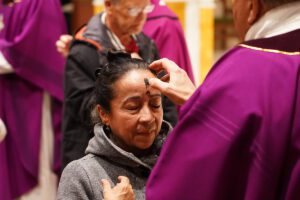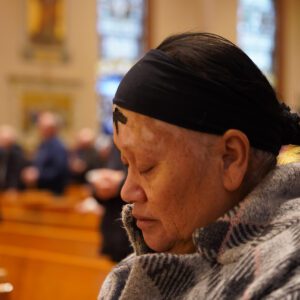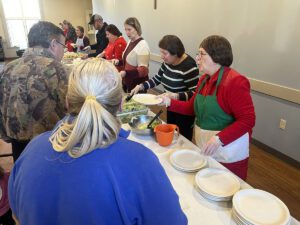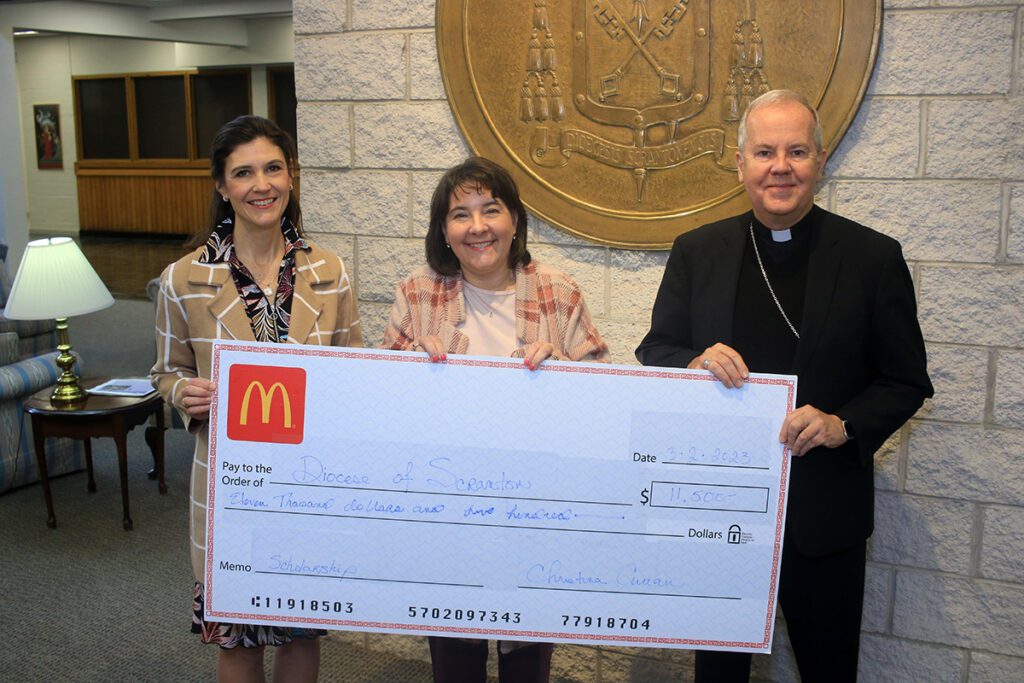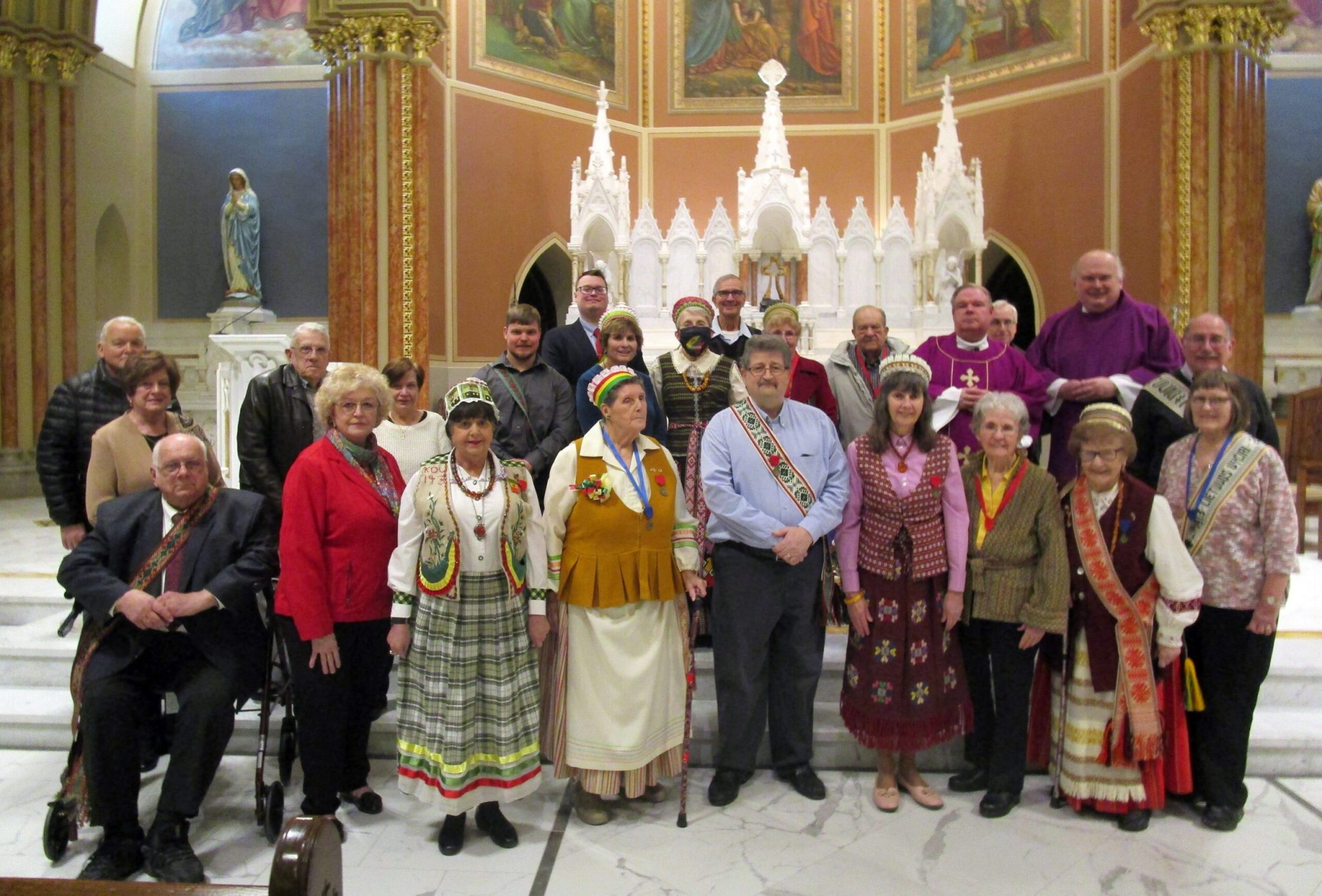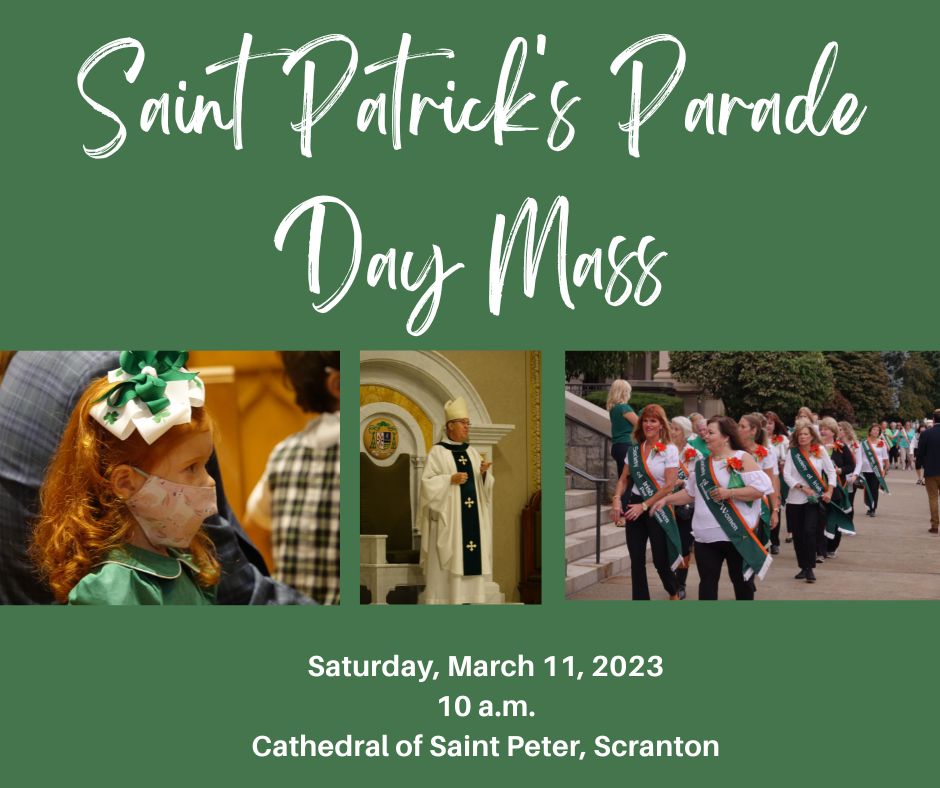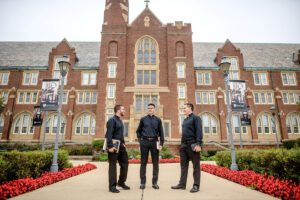SCRANTON – Before the 61st annual Saint Patrick’s Parade took to the streets of downtown Scranton March 11, 2023, hundreds gathered to celebrate their faith and devotion to the patron saint of Ireland at the Cathedral of Saint Peter.
The Most Rev. Joseph C. Bambera, Bishop of Scranton, served as principal celebrant and homilist for the Parade Day Mass. As he began his homily, the bishop addressed the morning’s weather.
“Not a few of us breathed a sigh of relief this morning as we dodged another proverbial bullet and snowstorm,” Bishop Bambera joked.
Between delays and cancellations associated with the COVID-19 pandemic and a nor’easter last year that pushed the parade back a week – coincidentally to the Feast of Saint Joseph – there have been a lot of challenges.
“My theory is the Scranton parade woes made it all the way to the halls of heaven. Neither Saint Joseph nor Saint Patrick were willing to share center stage again, so here we are, just where we belong!” the bishop said to laughter.
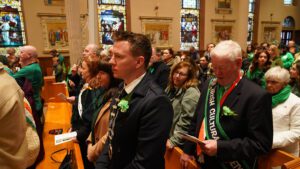
During Mass, the bishop also acknowledged two special guests from Ballina, Ireland, in attendance at the Parade Day Mass. Ballina is Scranton’s sister city in Ireland.
“It is incredibly heartwarming to see the welcome that we’ve been given. We’re following the same tracks that our ancestors would have travelled in much more difficult times so it’s a privilege to be here in times of celebration,” Ballina mayor Mark Duffy said.
As the second youngest of 13 kids, Mayor Duffy explained the importance of Saint Patrick in his life. He attended Mass at Saint Patrick’s Church growing up and his home address is Saint Patrick’s Way in Ballina.
He said attending Mass at the Cathedral of Saint Peter before the parade was “very emotional.”
“Coming in the doors of the church, you see the colors and the life and the vibrancy of this building. It is breathtaking. When you come into this church, to hear the quality of the music and the service and the welcome that the Bishop gave us, it is really a lifetime memory being created,” Mayor Duffy added.
Bishop Bambera also reflected on the importance of Saint Patrick and the legacy he left.
“By his work, Saint Patrick fathered a people and a culture. From a little green island on the edge of the Atlantic, the message of God’s mercy and love was generously shared,” Bishop Bambera stated. “Countless numbers of lives have been touched. Our nation has been blessed. And we are all richer in our faith because of God’s gift of Saint Patrick to our Church and to our world.”


